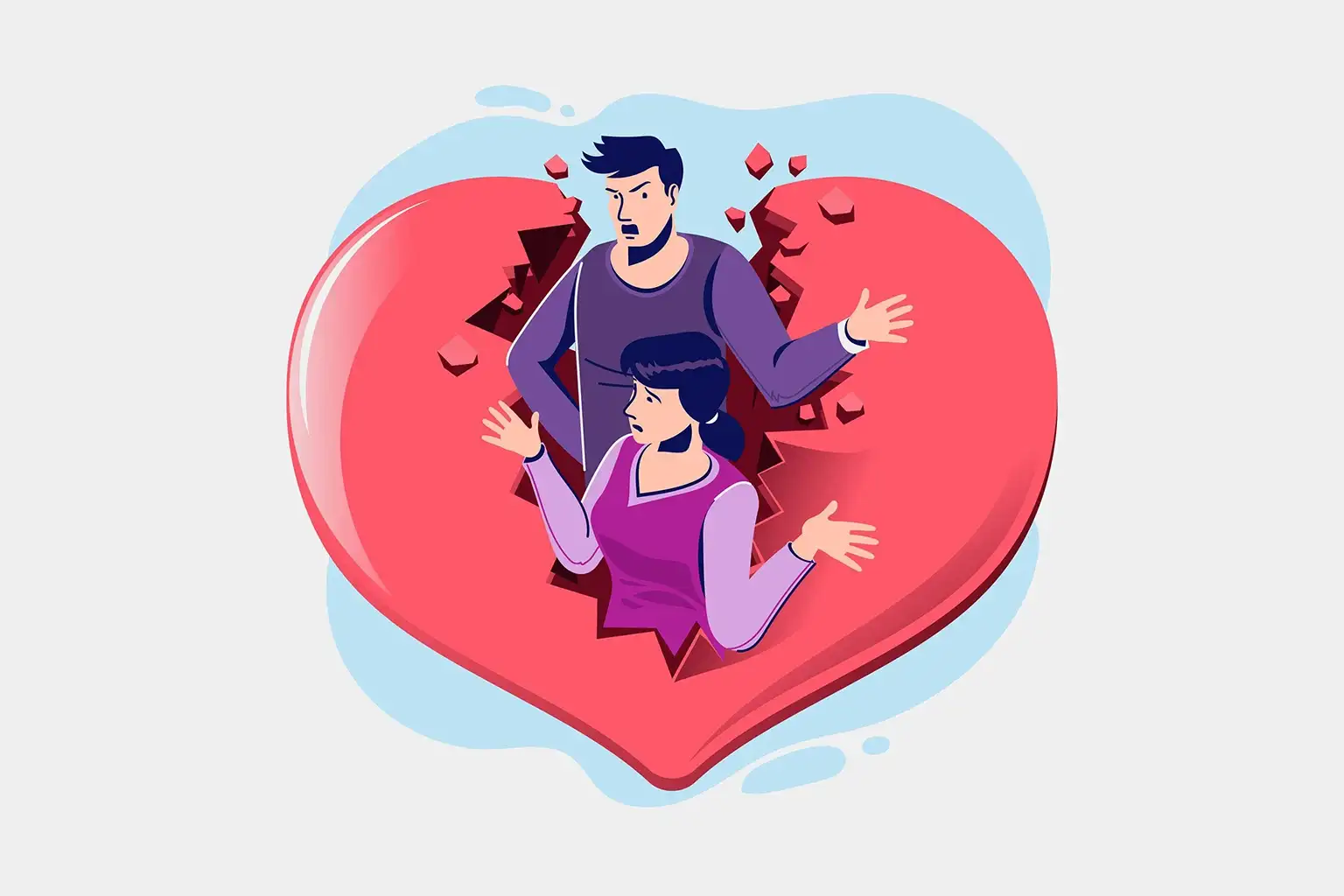Have You Ever Felt Swept Off Your Feet, Only to Be Torn Down Later?
Initially, everything was magical. They said all the correct things. They made you feel special, noticed, and deeply loved. However, with time, that heat began to lose its luster. You were left confused, nervous, and even hurt — wondering where that perfect start disappeared.
If this sounds familiar, you may have been a victim of narcissistic love bombing. Emotional manipulation like this is usually the beginning of a volatile cycle in a toxic relationship — a relationship that gradually erodes your self-esteem and sense of peace.
Recognizing this love bombing cycle isn’t merely about recognizing bad behavior — it’s about taking care of your emotional well-being and moving forward. Whether you’re in one of these relationships now or healing from one, this blog wants to help you with honesty, compassion, and understanding.
Let’s start from the beginning:

What is love bombing?
Love bombing occurs when you are showered with too much attention, affection, and flattery at the beginning of a relationship. It can be exhilarating — a fairy tale come true — but is usually employed to make you emotionally dependent.
When used by someone with narcissistic tendencies, it is a means of emotional manipulation. It’s not love; it’s control.

Real-Life Examples of Love Bombing:
- They tell you “I love you” in a matter of days or weeks.
- Endless praise such as “You’re the best thing that’s ever happened to me.”
- Excessive gifts or surprises, even when you just met.
- Rushing into it — discussions about living together, marriage, or eternal love prematurely.
Keep in mind: Good relationships develop gradually. Narcissistic love bombing circumvents the natural progression to manipulate you emotionally.

Knowing the Narcissistic Love Bombing Cycle
The narcissistic abuse cycle is not an isolated incident. It’s a cyclical pattern comprising multiple stages. Every stage contributes to undermining your emotional defenses and exerting control.
1. The Love Bombing Phase
This is where it all starts — strong affection, focus, and admiration. The narcissist may seem like your ideal mate. They reflect your desires, make grand promises, and continually compliment you. You could hear things such as:
- “You’re the only one who gets me.”
- “We’re destined to be together.”
- “I’ve never experienced anything like this before.”
This stage is all about establishing a deep emotional connection — not on reality, but on fantasy. It’s quick, flattering, and overwhelming. That’s why most people miss the initial love bombing red flags.
2. The Devaluation Phase
After you’re emotionally attached, the mood changes. The same individual who loved you now rejects you, disregards your needs, or engages in mind games. You may hear:
- “You’re too sensitive.”
- “You always overreact.”
- “Why can’t you be more like you used to be?”
This is where gaslighting, passive-aggressive behavior, and emotional distance start. You might be baffled, constantly seeking to “fix” things or earn your value. This isn’t love, this is emotional control.
3. The Discard Phase
Once they’ve dismantled your confidence, the narcissist will suddenly disappear — at times callously or abruptly. They might:
- Disappear contact
- Accuse you of everything
- Replace you soon with another
The discard phase narcissist behavior is extremely hurtful and harmful. It makes the victim feel worthless and rejected.
4. The Hoovering Phase
Most narcissists won’t go away for good. They usually return, feigning change, saying sorry, or seeking another chance. This is referred to as hoovering — a vacuum pulling you back in.
They can say:
- “I can’t stop thinking about you.”
- “Let’s try again.”
- “I’m lost without you.”
This phase reopens wounds and can restart the cycle. Remember, real change takes time and action — not just words.

How This Cycle Affects Your Mental Health
Being in a narcissistic relationship cycle can be deeply damaging, both emotionally and mentally. Victims often don’t realize how much the cycle has affected your Mental Health them until they’re completely drained.
Common Emotional Impacts:
- Anxiety and panic attacks
- Low self-esteem and depression
- Fatigue and sleep problems
- Ongoing self-doubt and confusion
It’s not uncommon for survivors to also feel trauma bonding, which is when you feel emotionally connected to the person abusing you. That makes it more difficult to escape, even when you realize that the relationship is harmful.
Another typical reaction is cognitive dissonance — the psychological discomfort of having two clashing beliefs, such as:
“They love me” vs. “They hurt me”
This is why recovery from emotional trauma can be time-consuming. The harm is intangible, but very real.

Why Narcissists Follow the Love Bombing Cycle
Knowing why these behaviours occur can empower victims to emotionally disconnect and start healing.
Individuals with traits of narcissistic personality disorder tend to have:
- A strong need for admiration
- No empathy
- A strong urge to control others
- Fragile self-esteem behind a confident facade
To them, love bombing is a means to inflate their ego and acquire emotional control. It’s not about relationships — it’s about domination. After they feel that they “own” you emotionally, they lose interest or become cruel.
That’s why narcissistic behaviour is so disorienting. They can be charming and heartless in one day.

How to Recognise the Cycle Before It’s Too Late
Being able to spot the signs of a narcissistic partner early can help protect your emotional well-being.
Watch Out for These Love Bombing Red Flags:
- Rapid relationship
- Showering with compliments and then abruptly pushing you away
- Guilt-tripping or manipulating you emotionally
- Questioning your memory or feelings
If something doesn’t “feel right,” trust that intuition. Love shouldn’t be like tiptoeing on eggshells.
Setting Boundaries and Getting Out
Escaping a toxic relationship with a narcissist takes strength — but it’s possible.
Steps to Protect Yourself:
- Practice the no contact rule (block them on all platforms if possible)
- Create strong boundaries — emotionally, physically, and digitally
- Don’t explain or justify your choices to them
- Limit or end contact even if they promise to change
Most importantly, setting boundaries with a narcissist isn’t being harsh — it’s protecting your peace.

Healing and Recovery Hints After Narcissistic Abuse
Psychological abuse recovery isn’t about recovering fast — it’s about healing on your terms, with kindness and care.
Practice These Emotional Healing Strategies:
- Emotional abuse therapy (ideally trauma-informed)
- Journaling emotions, triggers, and growth
- Daily self-care habits (exercise, sleep, healthy eating)
- Connect with support groups (online or in-person)
- Limit contact with people who don’t support your healing
It’s also important to remind yourself: You are not what happened to you. You are allowed to feel, to cry, to pause — and then, when you’re ready, to rise.

Frequently Asked Questions
1. Can love bombing be unintentional?
Yes, sometimes folks do show affection in a hurry because they’re enthusiastic. But if it’s overwhelming, rushed, or is accompanied by guilt or pressure — it could be a red flag.
2. How long does every stage of the cycle last?
There isn’t a set timeframe. For others, the cycle can take a few months. With others, it might be years. What you should focus on is how it makes you feel — and how consistently those emotions are dismissed or controlled.
3. What if I still love the narcissist?
It’s normal. Due to trauma bonding, victims get very attached. Love does not equal staying in pain. You can love someone and still choose yourself.
Conclusion: You Deserve Real, Safe, Honest Love
The narcissistic love bombing cycle is perhaps the most confusing type of emotional abuse. It begins with fairy-tale love, devolves into quiet cruelty, and culminates in deep emotional wounds. But knowledge is power.
By learning to recognize the signs, establish boundaries, and get help, you can start your journey towards narcissistic abuse recovery.

